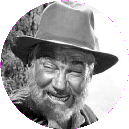 The Heart Is a Lonely Hunter
(1968)
The Heart Is a Lonely Hunter
(1968)
Academy Award for Best Supporting Actress (Sondra Locke)Award details: (details at IMDb)
Below are links to reviews and further info from selected film sites. Links surrounded by a solid border lead directly to a page about this movie on that site. Links surrounded by a dashed border lead to a Google search for this exact movie title on that site. You may find it more efficient to open these links in separate browser tabs. Click Show More / All / Default to see more available links or return to the standard default selection. More (or fewer) choices of links can be selected via Options, and you can save your personal defaults (requires login).
The Heart Is a Lonely Hunter is a 1968 American film adaptation of the Carson McCullers novel of the same name. It was directed by Robert Ellis Miller. It stars Alan Arkin and introduced Sondra Locke, both earning Academy Award nominations. The film updates the novel's small-town Southern setting from the Depression era to the then-contemporary 1960s.
